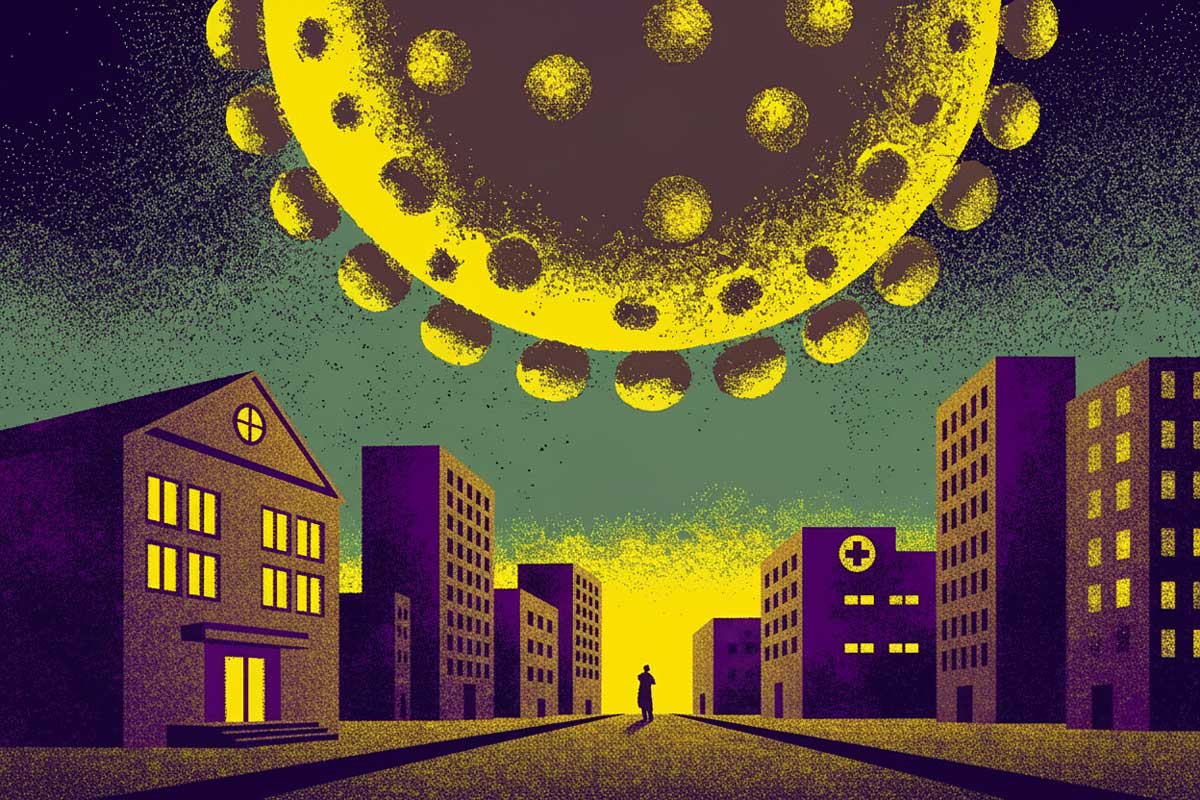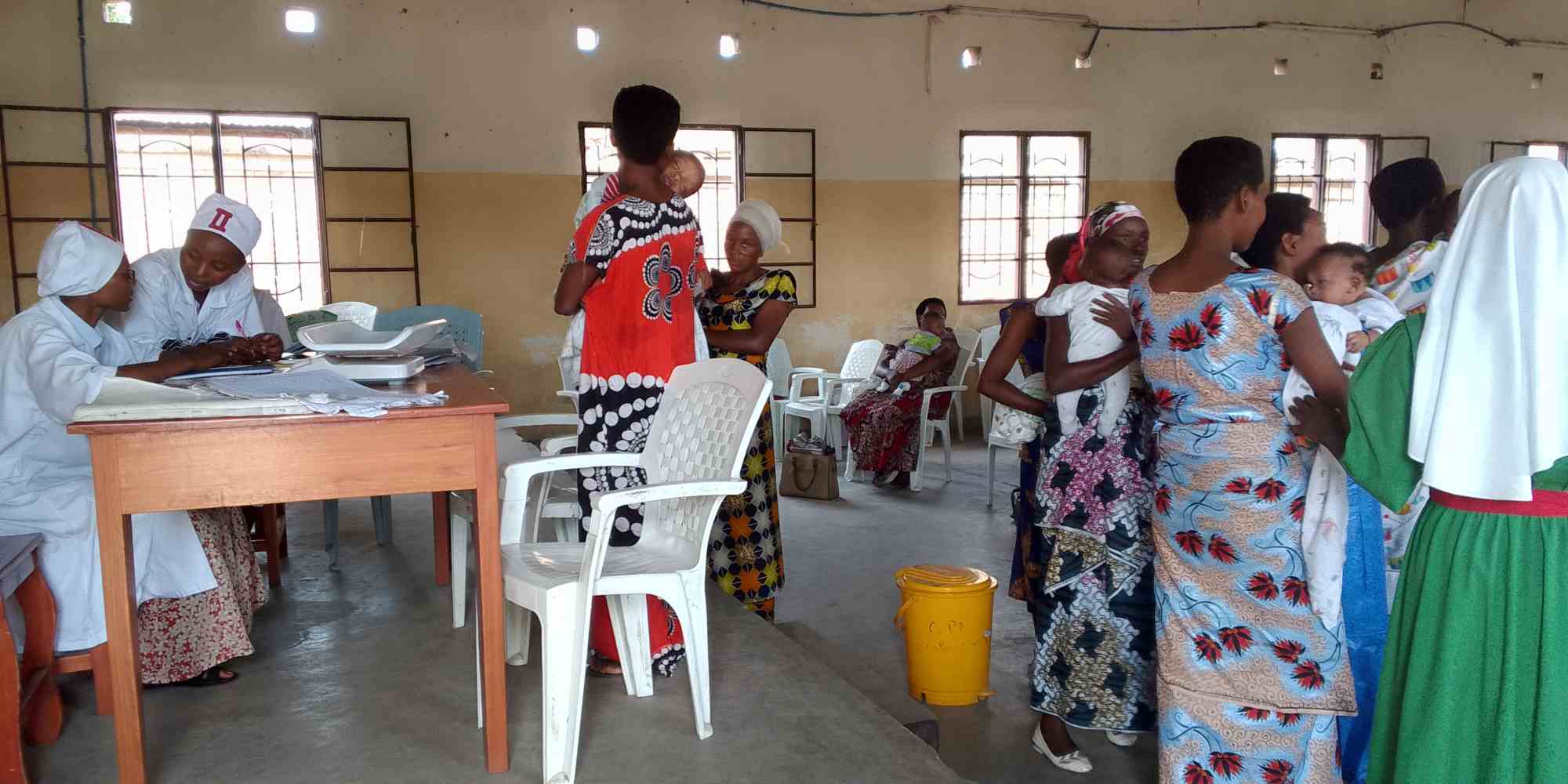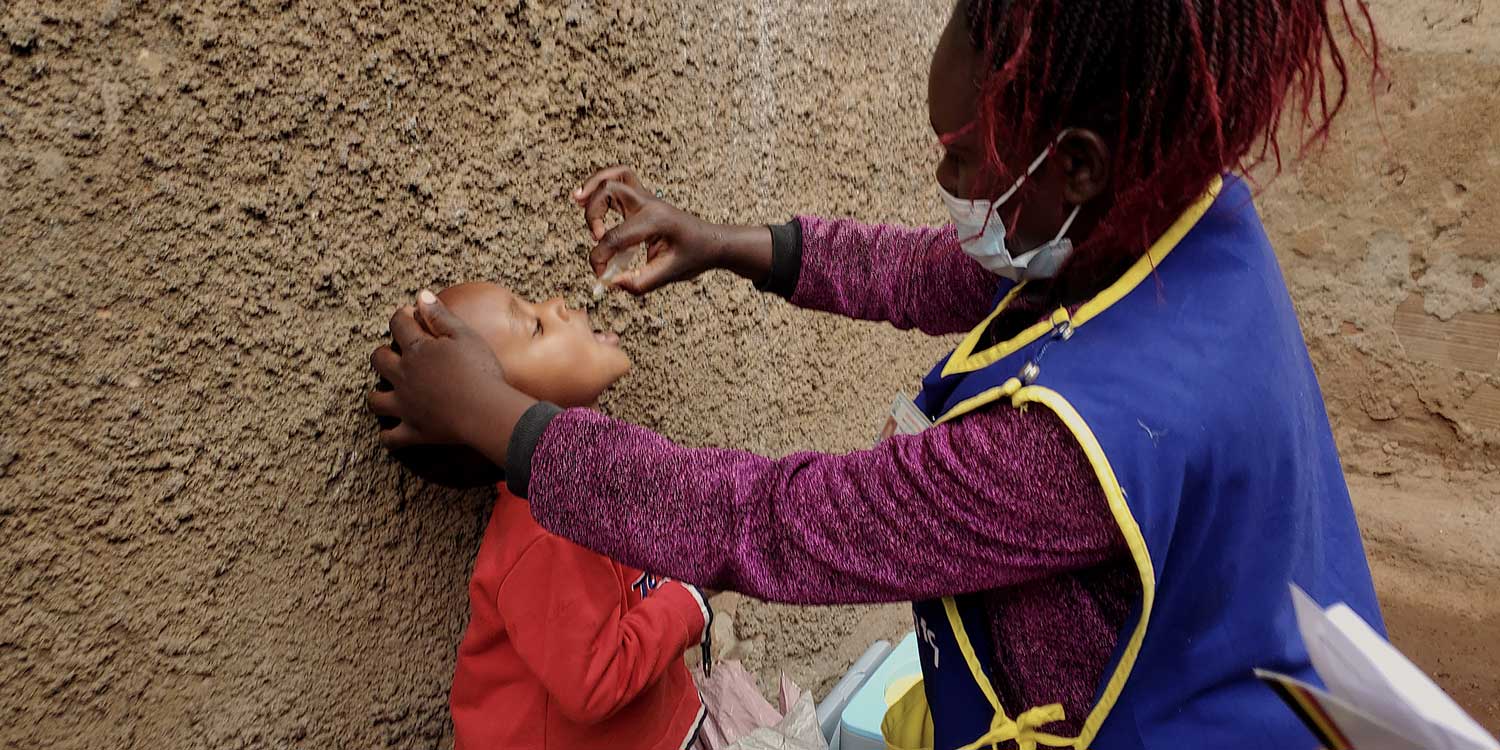Caught between conflict and exile: how Burundi is working to vaccinate Congolese refugee children
Burundi authorities are racing to vaccinate thousands of vulnerable refugee children who have fled conflict in the neighbouring Democratic Republic of the Congo, and head off brewing outbreaks.
- 30 July 2025
- 6 min read
- by Diane Ndonse
Since the start of 2025, more than 70,000 Congolese nationals have sought refuge in Burundi, according to the UN Refugee Agency. The majority are women and children fleeing the fighting in eastern DRC between the Congolese armed forces (FARDC) and M23 rebels. Many arrived in Burundi exhausted, some after walking for weeks through the bush, and often without receiving any medical care along the way.
Among them are large numbers of children who have never received basic vaccines against diseases including measles, polio, tuberculosis or whooping cough. Others received their earliest jabs, but had their immunisation schedules abruptly cut short. This situation has raised fears of potential outbreaks in the reception camps.
“These children are especially vulnerable,” warns Dr Jean Claude Bizimana, Director of the Expanded Programme on Immunization (EPI) in Burundi. “Delays in vaccination during large-scale displacement significantly increase the risk to the entire population, including in host communities.”
Credit: Diane Ndonse
In response to the massive influx, Burundi’s health authorities have launched an emergency vaccination campaign – with limited resources – to try to close the immunisation gaps. But precarious living conditions in the transit sites, a shortage of clean water and a lack of healthcare staff are all major obstacles to achieving effective vaccine coverage.
Life in transit
In Rugombo, a border commune in Cibitoke province, the main reception site for Congolese refugees is overcrowded. Thousands of people are living in makeshift tents, unfinished buildings, or bedding down directly on the ground. People are scattered across the communal stadium and nearby open land.
“Men sleep outside, while women and children try to shelter inside buildings with no windows or doors,” says Daniel Ifola Ntabara, head of the reception site.
Overcrowding, lack of access to clean water, and the absence of basic infrastructure create fertile ground for the spread of disease, and Rugombo faces chronic water shortages, despite efforts by the Red Cross and Congolese volunteers to maintain basic hygiene at the site.
“To prevent outbreaks like cholera, we carry out daily spraying in every corner of the site,” explains Dieudonné Ndikumana, a community health worker.
Credit: Diane Ndonse
In these conditions, ensuring continuity of care, pregnancy monitoring, and childhood vaccination poses a major logistical and human challenge. Health centres are overwhelmed, staff numbers are too low, and the absence of medical records makes it difficult to identify children who are unvaccinated or only partially vaccinated. Health risks are mounting – especially as most of the refugees are women and children.
Zero-dose children: a generation to catch up
In the queues outside makeshift health posts in Rugombo, many mothers speak of fleeing the violence without having had time to vaccinate their children. Some were never able to begin the vaccination schedule at all.
That’s the case for Kanyele Hangi, a mother of five from North Kivu province. “My baby is five months old and has never had a single vaccine. We left Congo when he was one month old, then I walked for an entire month before reaching here,” she told VaccinesWork.
This type of situation is common in transit areas and in neighbouring Buganda commune, where many so-called zero-dose children – those who have never received any vaccines at all – have been identified.
Chancelline Alliance, who fled from South Kivu, saw her son’s vaccination schedule cut short: “We were constantly on the move, never staying in one place. He got his nine-month vaccine, but nothing after that.”
Dr Bizimana warns of the wider consequences of these gaps: “When a child misses a dose, they’re no longer protected – but it also weakens herd immunity. That opens the door to outbreaks of measles, polio or diphtheria.”
The EPI programme has so far identified thousands of children in urgent need of catch-up vaccination, but it has not yet been able to reach all new arrivals.
In the camps, identifying these children remains a complex task: there are no health records, families follow chaotic routes, and many have been separated. On top of that, some parents, rattled by traumatic experiences and limited access to reliable information, remain deeply wary.
Have you read?
A race against time: the catch-up vaccination campaign
To prevent a humanitarian crisis from turning into a public health emergency, Burundian authorities – with support from international partners – have launched a large-scale, targeted vaccination campaign. At its core is the Big Catch-up programme, backed by Gavi, the Vaccine Alliance, WHO, UNICEF and the UN Refugee Agency (UNHCR).
“We’ve administered all the vaccines included in the Big Catch-up campaign – measles, polio, diphtheria, whooping cough, hepatitis B, Hib…” explains Dr Bizimana. Children identified as zero-dose are vaccinated upon arrival, with data fed daily into the national health information system.
Particular attention has been given to measles – a highly contagious disease – with a campaign targeting children aged six months to 14 years. Mobile teams, supported by WHO and volunteer nurses, travel between transit sites and entry points, notably in Gatumba and Makamba.
The success of the campaign has relied in part on strong logistical and financial support from partners. Gavi funded the vaccine purchases, WHO deployed additional staff and UNICEF contributed to improving sanitary conditions in the camps by providing mobile latrines and access to clean water. UNHCR, for its part, is supporting the relocation of refugees to more stable sites such as Musenyi, in the south-eastern province of Rutana.
With the humanitarian situation still evolving, sustained effort is essential. Achieving full vaccination coverage for refugee children requires constant commitment – including medical follow-up, uninterrupted supply chains, and a strengthened workforce on the ground. With the support of its partners, Burundi is laying the foundations for a long-term response – one that ensures every displaced child can access the protection vaccines offer.
This story is translated from French. Read the original.
More from Diane Ndonse
Recommended for you







